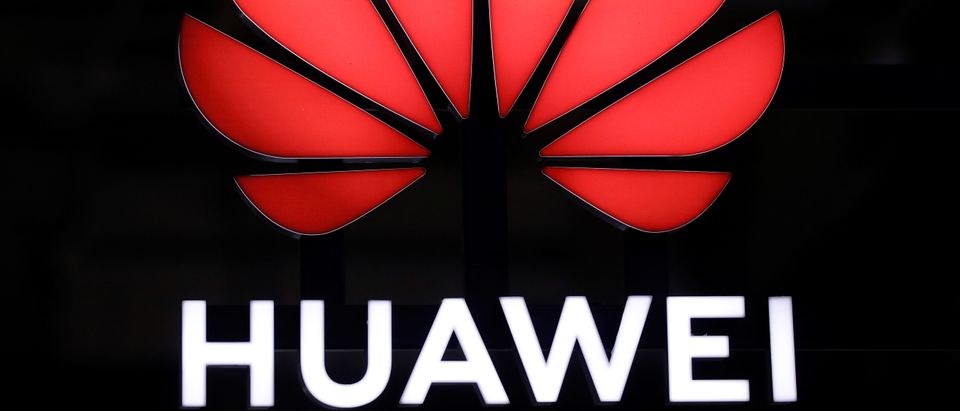President Donald Trump eased his restrictive stance on Huawei over the weekend, sparking bipartisan outrage.
During the G20 summit in Osaka, Japan, Trump relaxed his May 15 ban on the telecommunications giant by allowing U.S companies to continue selling software to Huawei.
This as the United States-China trade war comes to a temporary halt; talks are set to renew between the two nations again. The relaxed ban allows American businesses like Google and Qualcomm to tentatively continue business as usual with Huawei without seeking special permission from U.S federal officials. (RELATED: Tech Stocks Surge After Trump Reaches Trade Deal With Xi, Huawei)
Trump withheld a massive levy for an additional $300 billion in tariffs on Chinese products, while new trade talks are in the works.
Shortly after Trump made the announcement, Huawei called the decision a “U-Turn” on its Huawei Facts Twitter page. The Commerce Department has yet to clarify whether the decision will adversely affect Google’s recent suspension on doing business with Huawei.
“We’re going to work with China on where we left off to see if we can make a deal,” Trump stated during the G20 summit. “China is going to be buying a tremendous amount of food and agricultural product and they are going to start that very soon.”
Trump hinted that the restrictions on Huawei may continue to ease depending on the nature of U.S-China trade talks to come. But this move seemed to spark outrage in Washington as some question if Huawei should be treated as a national security issue or as an economic bargaining chip for trade leverage.
Republican South Carolina Sen. Lindsey Graham predicted bipartisan pushback if Trump used Huawei as a concession for steering trade talks. In sync with this prediction, Florida Sen. Marco Rubio expressed outrage at Trump relaxing the ban on Huawei and vowed to oppose the decision in the Senate.
“If President Trump has in fact bargained away the recent restrictions on #Huawei, then we will have to get those restrictions put back in place through legislation,” Rubio tweeted on Saturday. “And it will pass with a large veto proof majority.”
If President Trump has in fact bargained away the recent restrictions on #Huawei, then we will have to get those restrictions put back in place through legislation.
And it will pass with a large veto proof majority.
— Marco Rubio (@marcorubio) June 29, 2019
“If President Trump has agreed to reverse recent sanctions against #Huawei he has made a catastrophic mistake,” Rubio said in additional tweet. “It will destroy the credibility of his administrations warnings about the threat posed by the company, no one will ever again take them seriously.”
If President Trump has in fact bargained away the recent restrictions on #Huawei, then we will have to get those restrictions put back in place through legislation.
And it will pass with a large veto proof majority.
— Marco Rubio (@marcorubio) June 29, 2019
Democratic Virginia Sen. Mark Warner, the top Democrat on the Senate Intelligence Committee, warned The Hill last week that allowing U.S. companies to again do business with Huawei “would be a disaster.”
In a bipartisan team-up, Warner and Rubio sent a letter last month to Secretary of State Mike Pompeo and U.S. Trade Representative Robert Lighthizer, expressing deep concerns and warning against a rollback of the ban on Huawei.
Republican Arkansas Sen. Tom Cotton accused of being an “arm of the Chinese Communist Party” and called them “a close partner of the People’s Liberation Arm” in a tweet on Saturday.
Huawei is not only an arm of the Chinese Communist Party, but also a close partner of the People’s Liberation Army. https://t.co/6o79p0iFhs
— Tom Cotton (@TomCottonAR) June 29, 2019
Riley Walters, a policy analyst on Asian economy and technology at The Heritage Foundation, seemed to disagree with the president’s move to pardon Huawei in upcoming trade talks. Walters holds the telecommunications giant responsible for rampant IP theft involving American companies.
“Even when a deal is done, the U.S. should continue to seek to punish those who steal intellectual property—and not by punishing Americans simply because they want to buy goods from China,” Walters states. “The U.S. must enforce the rule of law and protect our intellectual property rights before, during, and after any deal with China is made. Otherwise, issues like theft stop being legal matters and become bargaining chips.”
Ryan Hass, a foreign policy fellow for the Brookings Institute, worries that other countries will overlook the security threat Huawei represents after Trump’s relaxed ban.
“If President Trump sees Huawei as an object of leverage in negotiations,” Hass explains, “but not a national security threat, it is likely that many other countries similarly will discount the national security risk posed by Huawei.”


